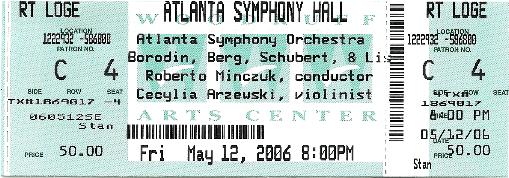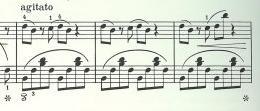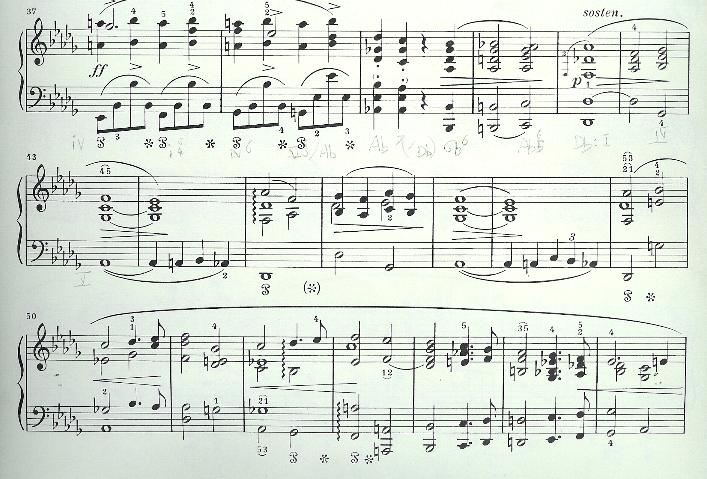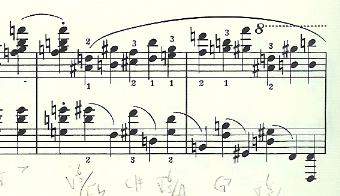May 30, 2006
RealClimate on An Inconvenient Truth
[ updated 31 May 2006 ] Well, this answers quite a bit about the JunkScience site:
Steven Milloy is a columnist for Fox News and a paid advocate for Phillip Morris, ExxonMobil and other corporations. ... Milloy runs the website Junkscience.com
It's not his conflict of interests that allow us to dismiss his claims, it's his track record of lies listed at The Skeptic's Dictionary and SourceWatch. This is why you trust signed, open authorship: so you can weed out the noise.
Eric Steig over at RealClimate has posted a review of Gore's An Inconvenient Truth [ via Digg ]. Steig gives a very positive review of the science in the movie. For the few criticisms and controversies, he links to prior discussions on RealClimate that examined those issues. Good information; RealClimate is an invaluable and open forum for scientists and non. Another Digg commenter posted a link to JunkScience's negative review of the movie. It has, notably, no open comments, but since knowledge wants to be free the thread at the RealClimate review begins to address those assertions at comments #72 and #73. Much more to read later.
The phrase junk science has been adopted by certain for-hire and astroturf groups who spread misinformation under the pay of corporations. Their site may be different, but that association is distracting. Add the lack of a forum (suggesting they don't care to open their assertions to debate) and lack of authorship (cf. RealClimate's articles) and the JunkScience site begins to appear uncomfortably opaque. The facts asserted are the important issue, but JunkScience.com certainly doesn't get any points for openness.
May 26, 2006
Caught
Ian Frazier summons his best Holden Caulfield impersonation in the May 29, 2006 New Yorker (detailing one observer's impressions on the NYC coyote caught two months ago). Hilarious writing with its overzealous commas and quite a high ratio of "goddam"s per square paragraph, by the way.
More on Morgellons
57 News stories on Google News referencing 'morgellons'. One story says that the CDC is creating a task force, yet I could find no references on their site. This person points out the same concern but appears oddly bitter about the delusional bahavior
of Morgellons sufferers.
My previous post on Morgellons on the 23rd pointed to an Adrants article that suggested it is viral marketing for A Scanner Darkly. A few comments have been added since then, and the Wikipedia entry has been updated with the recent flurry of local news reports, along with the claim that MLB relief pitcher Billy Koch and his family have Morgellons. That section was added on the 24th after a story about Koch and Morgellons was published by KTVU in San Francisco.
Continue reading "More on Morgellons"May 24, 2006
Open mic at Eddie's Attic, two nights ago
Many thanks to everyone who came out Eddie's Attic Monday night. It wasn't my best night, but that's going to happen so whatever. I've been puzzling over why exactly I couldn't focus: I had practiced enough and know the songs very well, but I think that poor stage monitors still throw me off. The bass was very loud and the higher notes were non-existent. I need to either test the sound more fully before starting or focus better. A little of both. Anyways, it was otherwise a good night and it's great to have friends who'll suffer through the open mic scene.
For anyone who's interested or who hasn't noticed those prominent links to the right of my front page: I occasionally go to venues with open mic nights to play songs from two rock operas that I had written. The first one, The Journalist, is about a photo-journalist who accidentally takes a picture of a map that can tell the future. The second one, The Silent Spectrum, is about kids in a rock band who try to stop an evil genius from taking over the world with his mind-control machines. If you're interested in listening to the demos, both pages have M3U playlists that will stream the audio. You can also download MP3s, the sheet music, and the MIDI. The piano writing ranges from moderate to advanced if you're interested in looking at the sheet music. In the next few months, I'll be starting work on my third rock opera. It is based on a true story about a man searching for parts to a time machine.
I don't have a MySpace account.
Continue reading "Open mic at Eddie's Attic, two nights ago"May 23, 2006
Mutability
It's getting easier to organize a reality that may-or-may-not exist.
An article at Adrants proposes that Morgellons disease--that weird-as-shit, alien-type skin problem that's been cropping up in south Texas--could be viral marketing for the upcoming Philip K. Dick movie A Scanner Darkly. Morgellons is compared to delusional parasitosis (which is just what it sounds like) and has an alleged history of doctors refusing to treat it because it's all in the patients' minds. Dick is notable for his novels of paranoia equal to Pynchon yet with some extra psychosis mixed in. Add in viral marketing to blur the lines and the mind boggles. Add to this the comments with the Adrant article. Several people--with that rare disease Morgellons--immediately called bullshit and called the author out. Almost as immediately, others noted the dubious nature of those posts: duplicated entries with different names, duplicate IPs on different entries. More examination only clouded the truth. The mind boggled a little more.
And here we have a Junk Charts article calling for caution in the use of Google Trends. Although I couldn't imagine serious citations coming from GT, its irresistibleness is undeniable. Like Google Battle and Google Fight before it, Google Trends compares two searches but then trumps the other sites by adding a (ungraduated) histogram over months or years. Neat-o. Who wouldn't be compelled to over-emphasize the fact that Java is more important than .NET is more important than Ruby? And so these throw-away comparisons become like a more compelling urban legend. Instead of "my uncle's friend's co-worker's mother said" type of supporting evidence, you have Google to stand behind your assertions. Not so crazy when even Language Log relies on the opaque cipherings of a Google search to determine common usage, even though on several occasions they puzzled over the fact that A OR B != A + B (see here and here and here for starters).
Continue reading "Mutability"Wired links to EFF/AT&T documents
The print page of the Wired article containing Mark Klein's document and the PDF of Klein's document with links expanded. He states: It's not just WorldNet customers who are being spied on -- it's the entire internet.
What the fuck would Republicans say if Clinton tried this shit? Probably exactly what Klein says in closing: This is the infrastructure for an Orwellian police state. It must be shut down!
May 22, 2006
Open mic at Eddie's Attic tonight
Hey! Look out!! I'll be playing at Eddie's Attic tonight at 8:20. Come watch the keys fly: zing, there's F-sharp! Pow, a G-flat! Oof, an E-double-sharp! (I promise there'll be more variety than that.)
And even if you can't stand piano art rock (wha?!?), come support the other local musicians as they wander freely in the wilds. It's all for a good cause: our egos.
Continue reading "Open mic at Eddie's Attic tonight"May 21, 2006
Jean Rohe, in the moment
Paired with Stephen Colbert's left-handed praise of the President should be Ms. Rohe's defense of her speech at the New School [ via Scott Spiegelberg ] where she had given a preemptive strike against McCain's re-hashed Liberty U. speech. Her speech was quick and clear; her defense is more personal and passionate and ably skewers some of the early criticisms coming in.
May 20, 2006
MC Frontalot at The Drunken Unicorn last night
Best show of the year. First time at the DU and man was it worth it. Frontalot was as geeky/cool as you would expect and backed by three tight session musicians (keyboard, bass, drums) in short-sleeve button-ups and ties. Very good. Also: hilarious opening rappers from somewhere in Whitelanta with the solid Casio beats. They closed their show with a "so you're all here for Frontalot? ... fuck that!" Nice.
The only tragedy was that my phone scrambled all of the Frontalot photos! Now I have no proof. Go here and support the man, will ya.
Meta-languages
Short discussion on LtU about the Google Web Toolkit and commenting on its relationship to the Links programming language (which I had previously puzzled over). The GWT, on the surface, looks like a wonderful tool for Web development. More later...
May 17, 2006
Drink up, boy-o
Someone just told me that the British drink instant coffee. I have no idea if this is true (or if it covers a majority of British coffee drinkers), but isn't it interesting that it's completely opposite of British and American cultural stereotypes? Shouldn't the British--who were primarily responsible for introducing coffee to Europe--be coffee snobs, eschewing mere instant? And shouldn't the Fast Food Americans be swilling Folgers and such?
Hard science at its best, I know.
Short rant on "what you're supposed to like"
Overheard from an interview with a Catholic priest (paraphrased): "And don't try to tell me that The Da Vinci Code will at least get people interested in religion and the history of religion. People who read that won't be picking up [insert definitive tome on church history], they'll be picking up another Dan Brown book."
This is the same problem I had with "pops" versions of classical pieces. They don't introduce new listeners to the style and certainly don't act as a stepping stone to understanding how to listen to different styles of music. Ubiquitous music has created music wallpaper; converting classical music to wallpaper does not mean that you've brought it to the masses. If the masses wanted classical music, it wouldn't need to be bastardized.
This is similar-but-different from Scott Spiegelberg's defense of classical neophytes. Exposing a different style to others who are, or may be, interested is always a noble effort. Watering down or mutating the style--whether it's art or music or theater--and saying that it represents the original is just bad form.
I think that this is where much of the conflict occurs. Priests are getting pelted with questions based on an inane theory that an uneducated public falls for, despite the fact that the theory is present in a work of fiction. You can't blame the priests (or anyone interested in history for that matter) for being frustrated. And when someone says Unsteady volume = Most annoying thing about classical music
, they're asking classical music to be something it's not. It's sort of like wanting to look at Rembrandt painting's only if they have red in them. Sure, some do, but does that request have anything to do with looking at art? The volume "problem" could be solved by listening to some Baroque music--which the listener would then allow to drop into the background and they might as well just be listening to white noise. Is that really introducing them to the music? The art "problem" could be solved by simply purchasing some crap corporate art, designed as decoration, that fits a color scheme.
Ultimately, Art is larger than one person's opinion; and yet it can't be all things to all people. Those who want to restrict Art will invariably yell "relativists!" and "postmodernists!" when confronted by a more encompassing definition. Conversely, those who try to open all Art to all people will invariably yell "elitist!" when confronted with a more narrow definition. Conveniently, I'll put myself on the side that fits best whatever my current argument is. I'm a postmodern elitist.
May 16, 2006
Fury
Heard on WNYC: the band Gutbucket doing a jazz cover of the sixth movement (Danse de la fureur, pour les sept trompettes, "Dance of fury, for the seven trumpets") from Messaien's Quartet for the End of Time, performed on their album Sludgetest.
Messiaen is so rock and roll sometimes; I'm glad I'm not the only one who sees that. The Peter Serkin recording of his Vingt Regards sur l'Enfant-Jésus is required listening.
May 15, 2006
Art, brute
Been meaning to post about Scott Spiegelberg's recent writing on the delicate balance between (1) classical fans, (2) classical concerts, and (3) the interested-but-uninitiated. He makes good yet too brief points and is predictably tut-tuted by A. C. Douglas. Prof. S. replies and holy shit the science blogs pick up the story. Good reading.
May 14, 2006
Open mic: Monday the 22nd at Eddie's Attic
I'll be playing Eddie's Attic open mic again in a week. I go on at 8:20. Be there if you can because, as Eddie sez, it's good to have a fan club.
Continue reading "Open mic: Monday the 22nd at Eddie's Attic"May 13, 2006
Where was I?
Last Friday: neighborhood Cinco de Mayo party OTP at Tedra and Bill's with some other ITP friends. Lisa came in second in the limbo contest (on Cinco de Mayo?!?) to the less top-heavy Shelby. I should have escaped with a giant, eight-foot-tall inflatable cactus sticking out my sun roof but can see now that it might have brought undo attention on the drive home from unwanted persons.
Saturday was the Kentucky Derby party at Mary and Andrew's. Last year, Scott took home the purse; this year, LC and I raked it in. I can't speak for her, but I spent my winnings on My Pretty Pony collectibles.
Tuesday, we went to see Sophie Scholl at Landmark. Simple and moving. I compare it in emotional impact to The Constant Gardener but less artfully filmed. Her arrest occurs relatively quickly, after a few scenes familiarizing us with the main characters and the society they live in, and is followed by a series of interrogations that make up the bulk of the film. The interrogations become a battle of philosophies between her and an investigator who is impassioned yet ultimately reluctant to sentence an intelligent and sincere young lady. Nazis are an easy target, but this film is more about an inspiring act of bravery. You'll be in tears for the last 30 minutes.
Thursday we had a new HVAC unit installed in our condo. Our old one, though only 9 years old, was installed poorly and died an untimely death. After an estimate of $4100 from CoolRay we got a second estimate of $6500, and the choice was simple. The installation took all day, but I got to go up on the roof for the first time. What a view! Although we pay approximately $1,000,000-a-month in association dues, they say it's too expensive to build a deck up there. Jackasses. Anyway, we now have a fancy new digital thermostat that keeps us below the 80-85 we've become accustomed to.
That night was The Fantasticks at Shakespeare Tavern for Alicia's b-day. I knew very little about the show except that the sheet music was ever present in the music room in high school. Because of that, I expected a silly little musical but was very very pleasantly corrected. The play is smart and the theater's directing keeps your attention. The female lead knocks everyone else off stage with her resonant coloratura flourishes--with such skill in a relatively small theater, one viewing will make you realize what jackasses those American Idol contestants are. Social criticism aside, this was such an enjoyable show I've been recommending it to anyone. It's playing through June 25th.
We got home that night--after seeing Alicia's playful new dog Jesco and having a few drinks at Milltown Arms--and drunkenly watched the season finale to The Office. We usually don't delete drunk viewings of shows, just-in-case, but that rule was forgotten and now we're downloading it for $1.99 from iTunes. Anyone know how to de-encrypt iTunes videos?


Friday was the ASO and a wonderful and varied program of Borodin (Overture to Prince Igor, clip), Berg (Violin Concerto, with Cecylia Arzewski, clip), Schubert (Symphony #8), and Liszt (Les Preludes, clip). We hadn't been in quite a while and this was a perfect evening to return. After that, we had a drink that the hip-yet-accessible Table 1280 right next door. Dinner reservations were at 11 at South City Kitchen down the street on Crescent. Too. Much. Food. So. Good.
Continue reading "Where was I?"May 12, 2006
Difficulty
The closer this administration gets to (at least the appearance of) fascism, the more difficult it is for liberals to argue against it. When we do, we just come across as if we're over-reacting because the offenses are so much worse than anyone could imagine. Let me just say that Godwin's law has been invoked in more conversations in the past two weeks than can be dismissed by stochastic slip-ups.
And if this has been happening--to anywhere near this degree--in previous administrations, it's sure weird that it took the presence of a classify-fevered, FOIA-hating administration--during "war-time" no less--to allow us to learn about it.
May 11, 2006
Tim and Jim
Martin Freeman plays Tim in the British Office. John Krazinsky plays Jim in the American Office. Wikipedia has a list of all of the parallel universe characters.
Martin Freeman has a personal Web site where you can purchase his CD of Motown covers. Not really interested in Motown, but good for him. Three out of five from five customer reviews. I still haven't seen H2G2 or Love, Actually.
John Krazinsky is apparently not as tech-savvy but is certainly getting some literary cred. According to Lisa and TV Guide, he's working on a movie adaptation of David Foster Wallace's short story "Brief Interviews with Hideous Men" due out in 2007. I had read Wallace's other collection of short stories, Oblivion, back in September of 2004. Even his short stories have an unbelievable density to them, so "Brief Interviews" should be worth looking for.
May 9, 2006
Sophie Scholl and The Hours
Going to Sophie Scholl [ IMDB, Rotten Tomatoes ] tonight at Landmark. It's getting very good reviews. (see my first post back in June 2004 about the White Rose student resistance in Nazi Germany).

Last night was The Hours (3/5) [ IMDB, Rotten Tomatoes ]. The melodrama was cranked up a little high--I'm not sure how many depressed people you can fit into one movie, but this has gotta be a record of some sort. Although it had (1) an unsatisfied 50s housewife, (2) an unsatisfied modern-day working woman, and (3) two tortured poets, the telling of the story and the characters involved were engaging enough to bypass the bathetic. The theme of the stories throughout asked the dual questions: how much suffering would you endure to make others happy, and how much suffering would you make others endure to allow yourself to remain happy? Ultimately, we can never know the depth of suffering that another person feels, so the decision must always be based on asymmetric knowledge. I suppose that a high number of depressed characters is required to convey such a message.
Continue reading "Sophie Scholl and The Hours"May 5, 2006
Dames. Aflame.
We saw some signs for Dames Aflame a week or so ago in the window of the old Peachtree Playhouse (aka, All Peachtree Battle, All the Time) on the first floor of our building. Ooh, says I, let's go see topless women! Lisa was less enthusiastic, and my impeccable logic (they're topless!!!) didn't sway her. We had actually seen them months prior (actually in April of last year) at the famous Kabao show in the Dojo Yakko gallery. It was an experience.
Well, apparently, they've set up house next to the Vortex and have called it The Laughing Skull Lounge (found via Toniet ... warning! thong-prominent lithograph). I can't believe how out-of-touch I am with my neighborhood. Next show there is the 19th. We'll be at the MC Frontalot show at the Drunken Unicorn, but we all need to plan a burlesque evening eventually.
May 4, 2006
Chopin, Piano Sonata No. 2, Op. 35, in B-flat minor, 1st Movement, Exposition
I'm approaching Chopin's second piano sonata in order; I'm not jumping around, but I keep aware of what's coming up and where each section fits in the whole. The first movement is in the classical minor-key sonata form with a rhythmic first theme in B-flat minor and a more melodic second in its relative major, D-flat. The exposition closes with two codas. The development contains a conversation between the two themes--beginning with the first theme in the bass punctuated by first shorter then more extended passages quoting the second theme in the soprano. More technical variations on the first theme slowly take over the bulk of the development, resolving with a recapitulation marked by the return of the second theme in B-flat major. The second theme contains few variations, and the movement ends with the two codas plus a third, more chromatic coda that contains a quote of the first theme and ends in B-flat major.
Looking at the exposition section, the first theme is presented with a written repeat, measures 9 through 20 and 25 through 36, and is marked throughout by a prominent yet short rhythmic pattern that is a key component of the bulk of the development.

The theme trades sparse harmonies--primarily i and vii7--for a constant bombardment of eighth notes. The transition between the repeats acts notably as a chaotic, chromatic break with the theme proper. Because it contains the exact same eighth note rhythms in each hand as the rest of the theme, the diminished chord harmonies and non-chordal half steps builds a minor tension before the return.

A quick bridge gets us to D-flat major and the second theme. This immediately trades the eighth notes of the first theme for half and quarter notes that help accentuate the melody as it takes longer and longer breaths. Whereas the key characteristic of the first theme is expressed in a terse six eighth notes, the second theme begins as economically with only five, but continues with a long slur that sings across eight measures (the theme begins on the last two measures of the first staff system below).

Like the first theme, the second has a written repeat, measures 41 through 56 and 57 through 80, but with greater variation and much greater harmonic and melodic development transitioning into the first coda. The end section of the second theme (measures 73 through 80) is one aspect of this piece that affected me with its earnest romanticism and liberal declaration across several octaves. Here it is (beginning on the third measure):

The harmonic analysis of this closing section holds more information than that of the equally varied first theme transition quoted above. Whereas the transition is better described by a series of half-step alterations, this section of the second theme gives up a great deal of itself from its chords. Viewed in two measure phrases, it procedes from two measures tonicizing the ii then the V, then three pairs with different harmonizations of I-IV-V underneath increasingly complex variations of the same melodic fragment ending in a perfect cadence in D-flat (not shown).
The exposition ends with two codas. The first consists of 12 measures: 4 measures repeating a very simple I V/V V I up and down two octaves, 4 varying that as I vii/V V I, then an abrupt shift to a similar phrase but in C major. C will be revisited early in the development. I really dislike these over-obvious harmonies--especially with the earlier, nuanced sections. I understand the need for a simple declaration of key here at the end, and it's simplicity lends greater force to the introduction of C major (via a German 6th), but I still have a problem with it.
The two measures before the second coda puzzled me for the first couple of readings (beginning on the second quarter note of the measure, played as triplets):

It actually sits in your hands more comfortably than it looks. Put simply: the soprano jumps tritones of the vii7 of C minor, the alto walks an octatonic scale of the same chord, and the left hand plays broken major 6ths (dim 7ths) of the same chord in contrary motion. Everything describes the vii7, but the octatonic scale introduces some chromatic noise for the inner voice. A distinct variation on the pattern is in the left hand on the fourth quarter note of measure 91: the left hand steps a tritone instead of a major 6th. This is important. I've been speaking of these two measures as two patterns--one in the right hand and one in the left--that effect a leading tone diminished 7th chord. This is all true, and the intended speed will blur much of the distinctions away, but the voicing ultimately suggests a progrssion of V65/Eb C# V65/A V42/C V65/Eb. The C# is an enharmonic equivalent to the key of the second theme and would otherwise be V42/F# if the pattern were maintained. The choice is, simply, a reinforcement of the key of D-flat.
The second coda begins in C major and quickly works back, through a series of half-step progressions, to D-flat major and a somewhat ambivalent cadence tonicizing the dominant. Within the context of the exposition repeat, this acts as a jarring deceptive cadence to the vi (B-flat minor) and the minor tonic of the first theme. For the development, this acts as--and I could be wrong, so don't quote me--the V/V of F-sharp minor. More later.
I have the exposition in my hands now and need to work on consistency, expressiveness, and velocity as I continue with the rest of the movement. I'll try to spend 80% of my time on new music and 20% on refining what I have.
Continue reading "Chopin, Piano Sonata No. 2, Op. 35, in B-flat minor, 1st Movement, Exposition"Do your duty
Stephen Colbert's speech improves over time and yet it is being marginalized. He excoriates the press and then is dutifully ignored. This is silly/offensive.
From A Perfectly Cromulent Blog:
Colbert managed to singlehandedly tear down much of the sycophantic and misleading bullshit surrounding the current Administration on a national stage, and he did it with the President sitting not 15 feet away. The man has, as Bullet Tooth Tony might say, "big brave balls."
A classic tactic of misdirection is occurring: Colbert's routine is being labeled "non-funny" to Bush's opening "funny" bit parodying his, I-shit-you-not, problems with Big Words, so the discussion is now over humor and appropriateness instead of what Cobert actually said. Ignore the content of the event and instead discuss the event as event. Bah. Good roundup over at The Washington Post.
May 2, 2006
The Links programming language
The Links programming language [ via Lambda the Ultimate ] is an experimental one-tier language that encompasses the three-tier Web model. A single Links program compiles into JavaScript to run on the client and into SQL to run on the database
. Groovy, I say. Check out their short, 12-page paper [ PDF ] describing this accomplishment.
I began thinking it was amazing-yet-misguided. Existing technologies are duplicated within its syntax (e.g. XQuery), and toy programs--though mandatory as communicative examples--necessarily avoid the pitfalls of scale. However, I'm beginning to think that I'm just prejudiced by the ubiquity and expressiveness of SQL, and maybe holding too tightly to the opinion that the current domain languages are separate because they must live in separate domains. Just because JavaScript exists on the client should we have to write to it? Maybe flattening can also simplify, and maybe Links is appropriate as sort of a 4GL Web language that sits atop several, grainier languages.
But then, what of the nightmare of HTML embedded in PHP, Servlets, et al.? Don't maintenance issues appear when hasty design flattens the different domains? What about the ideal: separation of layout (CSS), static structure (HTML), client logic (JavaScript), dynamic content (JSP script), and data management (SQL)? That separation exists for the similar reason that we create small methods, classes, and files: modules should only do one thing. The reason that Links seems like a natural progression is that we can so often blur the interface between the different domains. Is that blurring a hint that a single-tiered language is the answer, or simply the artifacts of ideas sketched quickly but not yet complete?
Resurgence in C++?
C/C++ Users Journal died a couple of months back, and my subscription was extended with DDJ. This seemed like one of those "signs" that everyone's been talking about for the past five-years-at-least. Even as magic was being accomplished with template programming (the main proponents being the guys at Boost and Alexandrescu), C++ was being relegated to the basement of low-level development.
Just a week ago, Google released their Ctemplate library (different type of templates) for separating layout and content. It basically brings C++ closer to the world of Web scripting languages. For the past several months, I've been getting at least one unsolicited email a week presenting C++ programming opportunities. Anecdotal, but interesting. And a friend just started a job that is--although I don't think exclusively--heavily involved in C++.
Maybe "resurgence" isn't quite right.